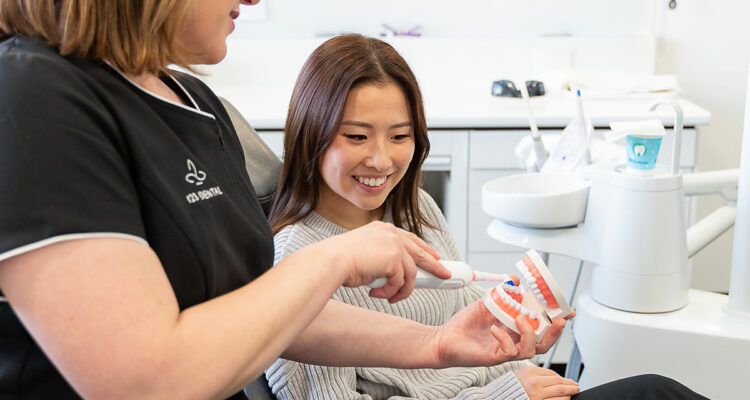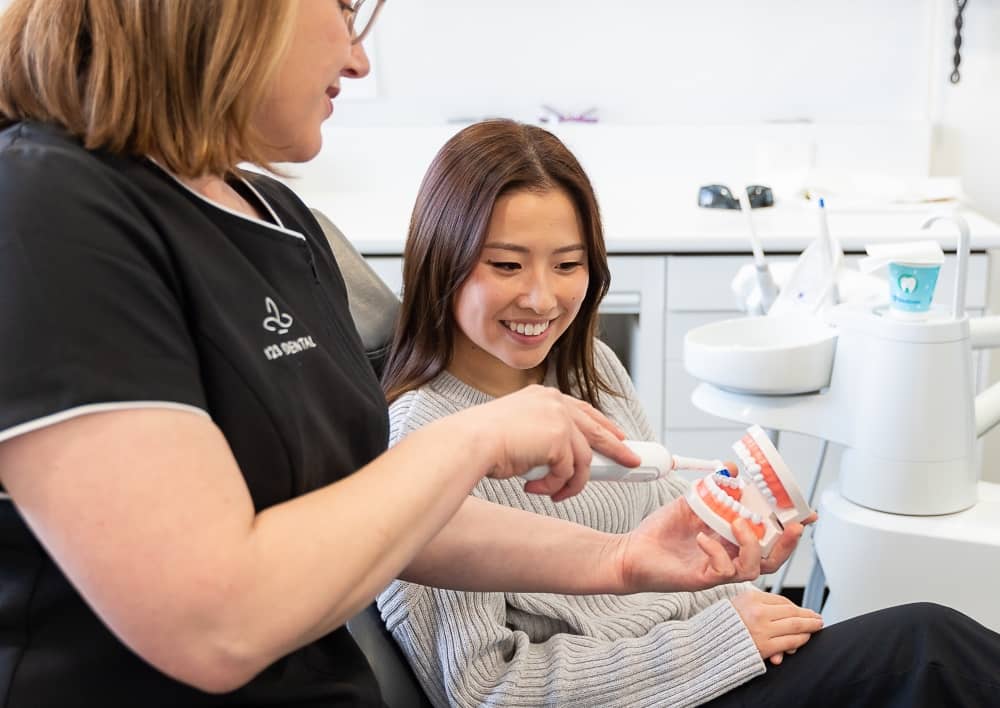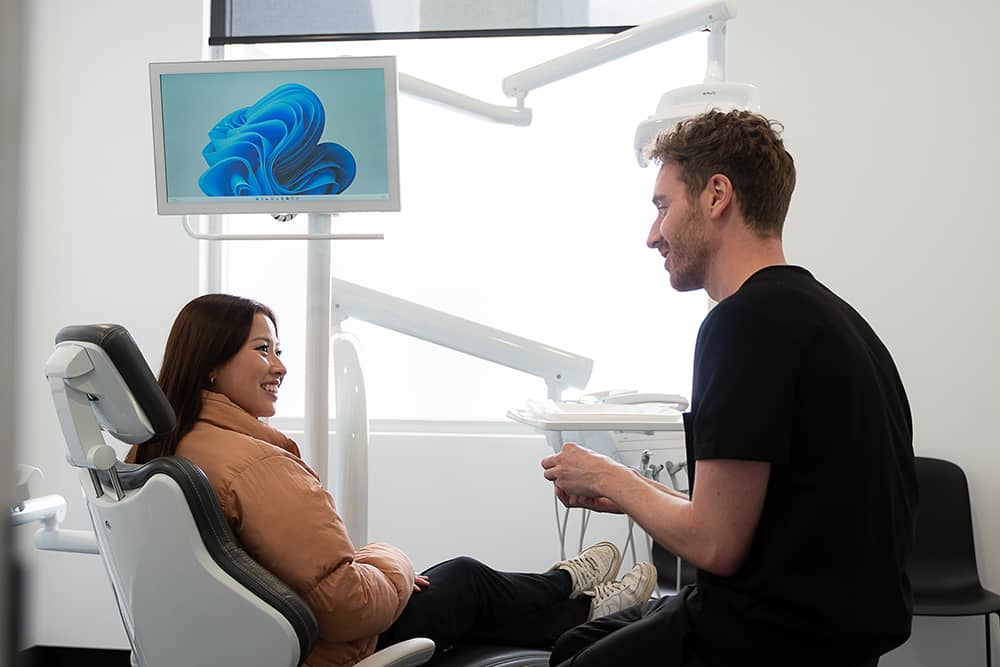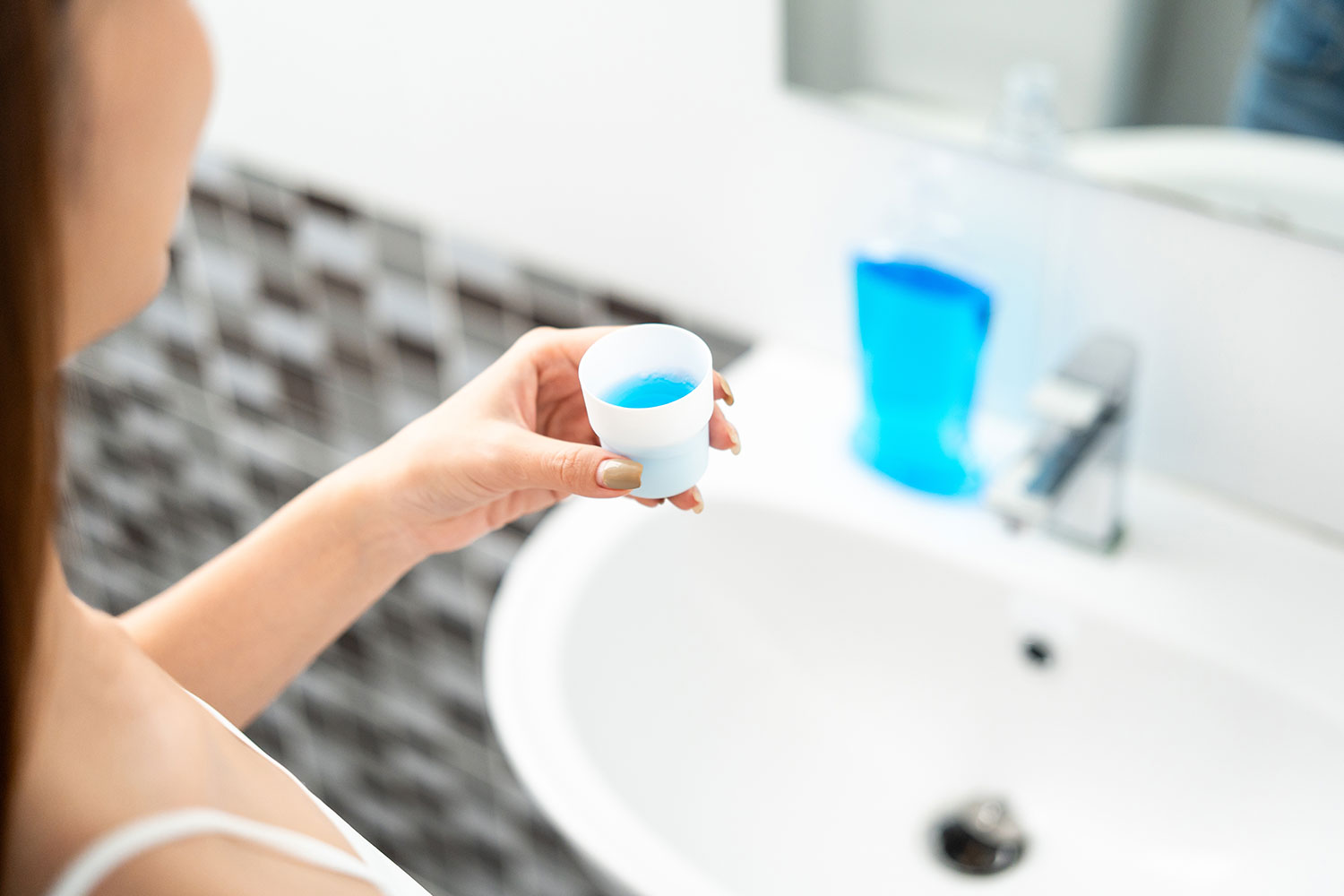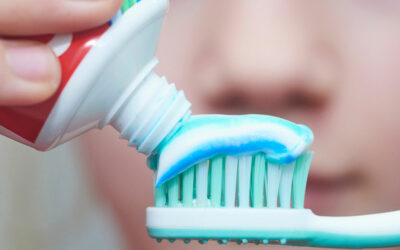Attending regular general checkups with your dentist is one of the best ways to maintain a healthy smile and mouth.
Along with professional cleaning and early detection of oral health issues, general checkups offer a great opportunity to discuss concerns or questions with your dentist.
I always encourage my patients to feel free to ask questions and I love knowing I’ve helped my patients feel more informed about an issue.
If you aren’t sure what to ask at your next appointment, here are some common dental questions to give you some ideas:
- Why should I have dental X-rays?
- How often do I need dental X-rays?
- How do I know if I have wisdom teeth problems?
- What can I do to improve my overall oral health?
- Am I brushing correctly?
- Am I suitable for teeth whitening?
- How can I improve my bad breath?
- Why are my teeth sensitive?
- How often should I get a general dental checkup?
- Should I consider dental implants?
- Should I use mouthwash every day?
- When should my child first see a dentist?
- What factors affect my dental coverage?
Why Should I Have Dental X-Rays?
X-rays are one of our most important tools for detecting oral health issues as early as possible. Certain conditions, such as gum disease, do not have signs in the early stages.
When caught early, gum disease treatment is more straightforward and effective. X-rays are a key tool for detecting oral health issues early before they can advance into more serious stages.
How Often Do I Need Dental X Rays?
For most adults, bitewing X-rays are recommended at least once a year. For individuals at a higher risk of decay or other oral health issues, X-rays may be needed every six months.
The best way to find out how often you need dental X-rays is by asking your dentist at your next general checkup. Your dentist will determine an individualised X-Ray schedule according to your specific oral health needs.
How Do I Know If I Have Problems With Wisdom Teeth?
Most people have four wisdom teeth. If they become impacted, a variety of problems can occur. While wisdom tooth impaction cannot be prevented, regular checkups are a crucial chance for your dentist to monitor their eruption and development.
Here are some signs of wisdom teeth problems, such as impaction or infection:
- Gums that are tender or bleeding
- Red, swollen gums
- Jaw swelling
- Jaw pain
- A bad taste in your mouth
- Bad breath
- Difficulty opening your mouth
If you notice any of these symptoms or have questions about wisdom teeth, do not hesitate to contact your dentist or schedule an appointment.
What Can I Do to Improve My Overall Oral Health?
Along with attending regular dental checkups, here is what I tell my patients when they ask me about how to improve their oral health:
- Brush at least twice a day using a soft-bristled toothbrush and gentle, circular motions
- Do not overbrush or brush aggressively as this can damage the gums and enamel
- Avoid or limit your consumption of high-sugar foods
- Avoid of limit your intake sugary, acidic drinks
- Use a fluoride toothpaste approved by the ADA (Australian Dental Association)
- Avoid smoking or tobacco products
- Eat a balanced diet full of tooth-friendly foods, whole grains, fruits, veggies, lean protein, and good-quality dairy products
By asking your dentist how to improve your oral health, you can get individualised advice for your needs. For instance, if I notice a patient is struggling with plaque buildup, I’ll make sure they understand proper brushing and flossing techniques.
For patients who deal with bad breath concerns, I’ll discuss diet habits, oral hygiene habits for good breath, and what they can do to enjoy better breath.
Am I Brushing Correctly?
Your dental checkup is the perfect time to ask your dentist if you are brushing correctly. You can also discuss the toothpaste you are using and correct flossing techniques.
One of the biggest mistakes I see with my patients regarding oral hygiene is overbrushing. It is easy to assume a “more is better” approach when it comes to brushing but this can be harmful. Brushing too vigorously or frequently can weaken the teeth or cause gum recession. Use gentle pressure and circular motions to brush your teeth twice a day to clean your teeth without overdoing it.
Am I Suitable for Teeth Whitening?
Professional teeth whitening is generally safe for the majority of people who want a whiter smile. However, we do not recommend teeth whitening for:
- Individuals below 18 years of age
- Pregnant women
- Individuals with extremely sensitive teeth
- Individuals with braces
- Individuals with oral health problems, such as periodontal disease or gum issues
The best way to know if you are a good candidate for teeth whitening is to ask your dentist at your next appointment
How Can I Improve My Bad Breath?
Bad breath, also known as halitosis, is a common concern among my patients. If you struggle with bad breath, your dental general checkup is a great time to ask about improving it.
Halitosis can have many causes, including eating potent foods that are high in sulphur, gum disease, certain medicines, tooth decay, smoking, and dry mouth.
Here are some of the tips I tell my patients about improving bad breath:
- Stay hydrated by drinking enough water to stimulate saliva production
- Brush your teeth properly and twice a day
- Clean your tongue by regularly brushing it
- Floss at least once a day
- Snack on tooth-friendly foods such as crunchy fruits and vegetables such as cucumbers, apples, carrots, and celery
- Visit your dentist for regular checkups
If you are worried about ongoing bad breath, ask your dentist for tips about improving bad breath at your next check up.
Why Are My Teeth Sensitive?
Tooth sensitivity occurs when the tooth’s enamel thins and the inner pulp is exposed. Individuals with tooth sensitivity find it painful to consume hot, cold, acidic, or sweet foods and drinks.
Your teeth may be sensitive due to:
- Overuse of tooth whitening products or using the wrong tooth whitening products
- Fractured or chipped teeth (Why You Should Never Ignore a Chipped or Cracked Tooth)
- Fillings
- Receding gums
- Tooth grinding
If you experience tooth sensitivity, be sure to ask your dentist for advice or treatment options at your next appointment.
How Often Should I Get a Dental Checkup?
The standard recommendation is to see a dentist twice a year for general checkups. For patients with severe oral health issues, visits may need to be more frequent.
Even if you have wonderful oral health, it is still important to regularly visit your dentist.
General dental checkups are a crucial opportunity for your dentist to detect oral health issues early. Early detection is important for conditions such as gum disease, tooth decay, bite abnormalities, and oral cancer.
General checkups are also a great time for you to bring up any concerns or questions you have.
Should I Consider Dental Implants?
A dental checkup is a good opportunity to ask your dentist if you are a good candidate for dental implants. If you are missing teeth or have weakened teeth, dental implants may be an ideal option to restore your smile.
To ensure you are a good candidate for dental implants, your dentist will evaluate your bone density, the health of your teeth and gums, and overall jaw bone structure.
Ideal candidates for dental implants have adequate jaw bone structure, healthy gums, and good oral health.
Should I Use Mouthwash Every Day?
When my patients ask me how often to use mouthwash and what the best mouthwash is, I tell them it depends on their oral health.
For individuals with good oral health, I recommend a mouthwash that contains fluoride to help fight cavities and freshen breath.
More advanced conditions, such as gingivitis or gum inflammation, may require a prescription mouthwash
When Should My Child First See a Dentist?
The Australian Dental Association recommends that a child see a dentist within six months of their first tooth appearing or no later than their first birthday.
What Factors Affect My Dental Coverage?
Private dental insurance is a common option for covering dental care in Australia. Coverage varies depending on the policy but typically bi-annual checkups, fillings, scale and polish, and routine X-rays are usually covered.
Have Questions for Our Team at 123 Dental?
There are many benefits of regular dental checkups, including the chance to discuss any concerns or questions with your dentist.
Dental checkups are an ideal time to go over questions, get personalised advice and oral hygiene education, and discuss treatments you are interested in.
If you are due for a general checkup or have questions you’d like to go over with us, feel free to contact us to book an appointment. We love working with our patients to help them feel well-informed and confident about taking care of their oral health and smile.


